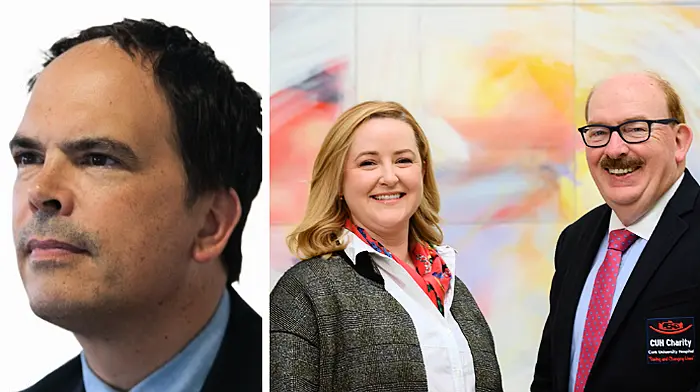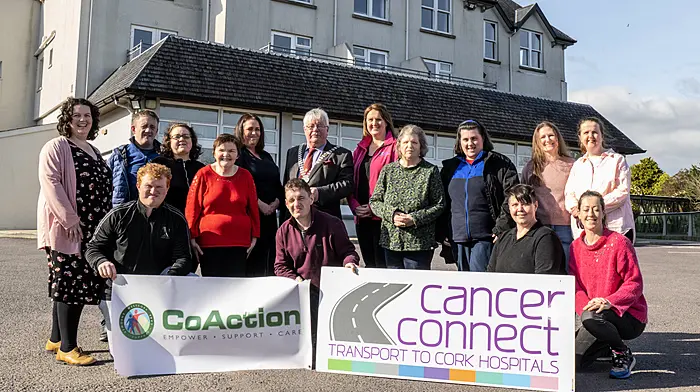
LIKE some kind of ancient fossil, my kids regularly tell me that I was ‘discovered’ shortly before the last T-Rex went extinct.
In truth, it was 1977, the year Elvis finally stopped swivelling those famous hips.
When I was a boy, we got news from either the daily newspaper, or ‘RTÉ Newstime’ after the Angelus at 6 (before it became the Six One News).
Life was simple, Jack Charlton walked on water, and Sean Duignan simply could not lie to us.
While you may not have agreed with the information, there wasn’t much choice in what opinions you got. The world is very different now.
Today, an estimated 86% of people get their news from a smartphone, tablet, or computer.
Between websites, social media, podcasts, and search engines, the sheer volume of digital information available is vast.
Alarmingly, about 40% of the traffic on the internet is not created by humans, and fake news stories are 70% more likely to be forwarded than real ones.
Into this environment, 80% of us look for health information. Studies have found that the majority of this information is not in line with best medical advice.
How can we know who gives this information?
Growing up, there was a man who used to call door to door in our estate selling all sorts of odds and ends.
The neighbours called him Del, after Derek Trotter in the BBC comedy Only Fools and Horses. Del would try to sell you anything, with the promise that it could do anything.
Nobody really took him seriously and definitely wouldn’t have trusted him further than buying a set of spoons.
Going online now in 2024, it’s worrying to consider that it could just as easily be Del on the other end of that keyboard giving out the healthcare advice on your social media
feed.
The internet is often called an echo chamber. In Greek mythology, Echo was a talkative nymph who was cursed by Hera, wife of Zeus, to only repeat the last words spoken to her. The information we receive on our social media is determined by algorithms designed to show us more of what we want to see.
As a patient once very wisely said to me, ‘the algorithms are not your friend.’
Hearing back what we want to hear only reinforces our belief that we are correct. With billions of people online, we’ll always find a group to agree with us.
Psychologists call this ‘confirmatory bias’ and ‘groupthink’. As useful as they may have been to our primitive ancestors to hunt and defend their village, in today’s world, these mental shortcuts are a huge risk to your
health.
It’s not just individuals like Del who spread misinformation. In 1998, a doctor in the UK falsely linked autism to a childhood vaccine.
Medical journal The Lancet retracted the paper in 2010, declaring its claims ‘utterly false.’ The damage, however, was done – with measles, a disease that can lead to brain damage, declared endemic in England again by 2008.
Knowing the facts means having sources you can trust. There is nothing more important than the health of you and your family.
Your health care professionals are your most reliable source of medical information. Although it’s not always easy to consult them directly, good sources of health information are available online.
For reliable health information, look to the official websites of the HSE in Ireland, the NHS in the UK, or the CDC in the US. Check the source, verify the evidence, and ensure it’s up to date. Before making any medical decisions, consult a registered health care professional.
In 982, a violent Viking named Erik the Red was exiled from Iceland.
He landed on one of the coldest and iciest remote islands and quickly realised that he needed company.
Sending word back home that he had found rolling hills and green pastures, he named the land Greenland.
Shortly afterward, 25 ships set out from Iceland, of which 14 made it. By the time they realised that 80% of the country was covered in ice, that ship had sailed, and the name had stuck.
Misinformation is not new, but it is just as dangerous to big decisions now as it ever was.
Know the facts – own your risk – decide for yourself.
• Dr Elaine Lehane, school of nursing and midwifery UCC is a co-author of this article. Elaine is a subject expert in evidenced-based practice. Prof Mark Corrigan’s next article will appear next fortnight.







